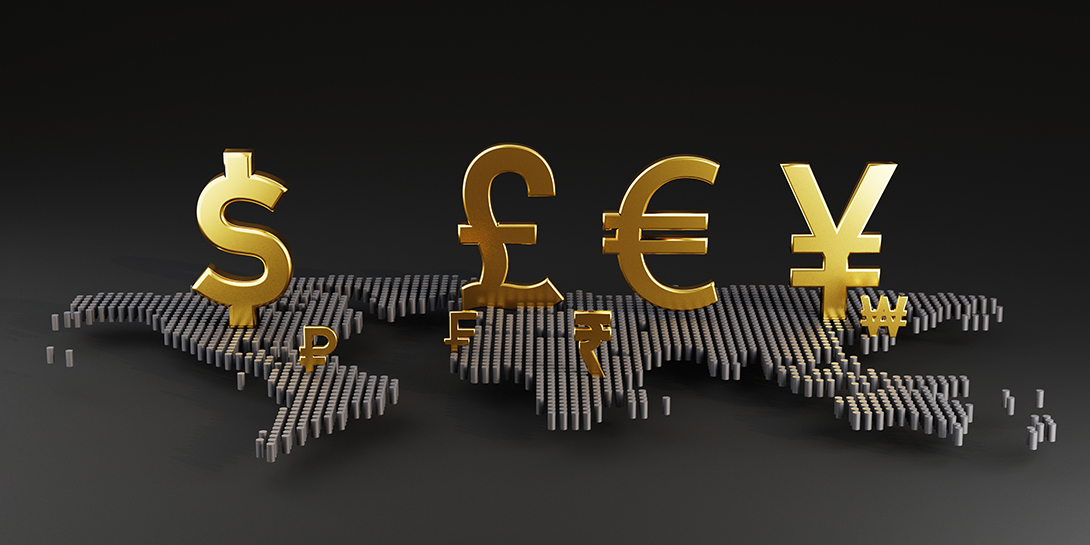Forex Versus the Stock Market

It is important for an investor to know that trading in the foreign exchange market is vastly different from trading in the stock market, even though both are components of the financial market.
While forex trading refers to buying and selling of international currencies, stock trading deals with buying and selling shares of various companies.
If you are a trader planning to make money in the financial markets but are confused whether to work in the currency market or in the stock market, don’t worry. Here’s a detailed analysis on how forex trading differs from stock market trading and what factors you should consider before making a choice.
Forex vs stock market
Mentioned below are some of the major points of difference between the forex market and stock market:
-
Factors that affect trading prices
In the forex market, the major factors that affect currency prices are those related to the economy, such as inflation, interest rates, gross domestic product (GDP) growth, current account deficit, etc. So, investors need to focus and research more on the macroeconomic situation of the country.
Stock prices fluctuate on the basis of financial health of the company, corporate earnings, expansion plans, etc. Overall health of the economy and the sector to which the company belongs is also important, but individual performance plays a more important role. Hence, investors need to do more company-specific research before a trading position.
-
Liquidity
Liquidity is basically the ease with which you can find buyers or sellers for your asset in the market. Higher the trading volume, higher the liquidity, and higher the chances of your trades being successful.
Both currency and stock markets in India are extremely liquid, the forex market has an edge as it is the largest and most liquid financial market in the world: This means that large volumes of currencies can be converted when bought or sold without causing too much price movement.
The stock market, meanwhile, witnesses comparatively fewer trades per day, though it still remains highly liquid. But investors can face issues when dealing in smaller shares that are not part of the popular blue-chip world.
-
Leverage
Leverage gives chances to traders to generate more with less. It is an investment strategy of using borrowed money to increase the potential return of an investment.
So, what happens is that when a trader places a trade, the broker can multiply it. So, suppose the leverage is 1:10, the broker can multiply the size of your trade by 10 times. This gives you a chance to generate more profit even if you have less funds. But you can also find yourself on the opposite side, making much more losses than you can afford to pay back.
Now, both stock trading and forex trading has leverage, but forex has significantly much more of it. You should consider this as an important risk assessment factor when you decide between stock and forex. -
Trading Hours
Trading hours for the stock market in India are from 9 am to 3.30 pm from Monday to Friday. Markets are closed on public holidays as well.
Meanwhile, the forex market remains active almost 24 hours a day in different parts of the world, with trading time in India being 9 am to 5 pm. Since Indian traders can take a position easily in the international currency market as well, they can trade effectively at any time of the day, making forex trading a much more flexible option for them in terms of time.
-
Volatility
Volatility is essentially a measure of how quickly share or currency prices fluctuate. Since forex is traded all around the world, it is extremely volatile. The savings grace is that prices move in a small range, but they can still make a big difference to your profit and loss amount (because of leverage and other factors like minimum trade size).
In contrast, the stock market is relatively less volatile, with easier-to-study price patterns, except in extreme situations of political or economic shocks. So, it is a better option for investors who are more risk averse.
Keep the above factors in mind before you take a call on which kind of market you would want to focus on. Usually, short-term traders with limited funds and higher risk appetite prefer forex trading. But for those who are new to trading and are looking for more stable returns over a higher duration of time, stock market may be a better option.
Disclaimer
ICICI Securities Ltd. ( I-Sec). Registered office of I-Sec is at ICICI Securities Ltd. - ICICI Centre, H. T. Parekh Marg, Churchgate, Mumbai - 400020, India, Tel No : 022 - 2288 2460, 022 - 2288 2470. The contents herein above shall not be considered as an invitation or persuasion to trade or invest. I-Sec and affiliates accept no liabilities for any loss or damage of any kind arising out of any actions taken in reliance thereon. The contents herein above are solely for informational purpose and may not be used or considered as an offer document or solicitation of offer to buy or sell or subscribe for securities or other financial instruments or any other product. Investments in securities market are subject to market risks, read all the related documents carefully before investing. The contents herein mentioned are solely for informational and educational purpose.
 Top Mutual Funds
Top Mutual Funds








COMMENT (0)